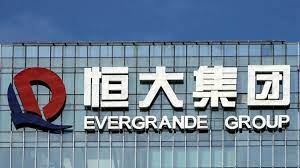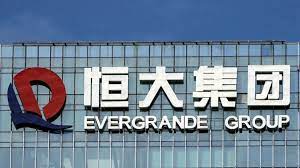
According to a report published in Bloomberg News, authorities in China have placed under police surveillance the chairman of China Evergrande Group, casting further doubt on the developer's future as it faces liquidation.
According to the article, Hui Ka Yan, who created Evergrande in 1996 in the southern city of Guangzhou, was detained by police early this month and is being observed at a specified site.
With more than $300 billion in total liabilities, Evergrande is the world's most indebted developer, and it has been at the focus of an extraordinary liquidity crisis in China's property sector, which accounts for nearly a quarter of the economy.
According to Bloomberg News, it was unclear why Hui was placed under residential surveillance. The measure was a type of police action that stops short of formal custody or arrest and does not imply Hui would be charged with a crime.
Requests for comment were not immediately responded to by Evergrande, the police department in Guangdong province, whose capital is Guangzhou, or the public security ministry.
A source close to Evergrande said Hui had stopped contacting colleagues in recent days, while an industry source said he was completely unavailable. Both refused to be identified since they were not licenced to speak to the media.
The purported move against Hui follows earlier this month's announcement by authorities in southern China that they had detained several personnel at Evergrande's wealth management unit, which gathered funds from individual investors by marketing investment products.
Evergrande, once China's top-selling developer, experienced a financial crisis in 2021, and it and a number of its peers have subsequently defaulted on their offshore debt obligations due to decreasing home sales and fewer new options for fundraising.
To make matters worse, Evergrande's offshore debt restructuring plan, which was critical to the company's survival in the face of a cash constraint, appears to be faltering, and the thought of the company being liquidated is gaining traction.
According to a note from UOB Kay Hian on Wednesday, the company is "very likely to fail on debt restructuring, and with negative equity, Evergrande may go into bankruptcy, which includes bankruptcy reorganisation and bankruptcy liquidation."
Evergrande is quite likely to seek bankruptcy reorganisation since the developer's already sold but incomplete units will be a concern to "social stability," according to the brokerage.
A significant Evergrande offshore creditor group reportedly planned to join a court lawsuit filed against the developer seeking liquidation if it does not submit a fresh debt overhaul plan by the end of October, according to reports on Tuesday.
The business shook the markets on Sunday when it revealed that a regulatory inquiry into its primary Chinese subsidiary, Hengda Real Estate, prevented it from issuing additional bonds as part of its plan to restructure its debt.
Hengda claimed in a separate filing on Monday that it had missed the deadline for paying the principal and interest on a bond worth 4 billion yuan ($547 million) by September 25.
On Wednesday, Evergrande's stock closed the day down 19% while the.HSMPI index, which tracks mainland developers listed in Hong Kong, declined 0.2%.
Evergrande expanded quickly as a result of a land-buying binge financed by loans and the hasty, low-margin sales of flats, becoming Hui Asia's richest man in 2017, according to Forbes.
But as its total liabilities grew to more over $300 billion and the Chinese government cracked down on enterprises with high debt levels, the property market faltered and pressure mounted on the company.
As the empire started to fall apart under increasing pressure to fulfil debt obligations and complete apartment building, Evergrande's organisational structure and the manner in which the company was run under Hui came under investigation.
The revelation that Hui had been placed under police observation, according to a Shanghai-based holder of Evergrande's yuan-denominated bonds, was not unexpected given the company's significant troubles.
The bondholder, who also not to be named owing to the sensitivity of the matter, stated that the attention will now be on whether the government will save Evergrande and how much Hui personally would pay to creditors.
"We are now just resigned to our fate."
Investors are also paying attention to issues at Country Garden, another significant Chinese developer, which has a new bond coupon payments deadline coming up on Wednesday.
The $40 million coupon, which has a 30-day grace period and is linked to an 8%, $1 billion bond maturing in January, is Country Garden's most recent payment difficulty as the developer works to avoid default.
The No. 1 private developer in the nation, whose financial difficulties worsened the outlook for the real estate sector and prompted Beijing to announce a slew of assistance measures in recent weeks, struggled to avoid defaults this month.
The coupon payment due this Wednesday is expected to be postponed by Country Garden, who will then utilise the extra time to plan for restructuring all of its offshore debt. This is what the company's creditors expect will happen.
There were no comments from Country Garden.
"The fall of industry stalwarts in China's property space has been alarming, to say the least," said Fiona Kwok, Asian Fixed Income portfolio manager, First Sentier Investors.
"Until Chinese regulators come through with stimulus significant enough to inject optimism into the property market and increase property sales, default risk remains high among private and mixed ownership developers."
(Source:www.economictimes.com)
According to the article, Hui Ka Yan, who created Evergrande in 1996 in the southern city of Guangzhou, was detained by police early this month and is being observed at a specified site.
With more than $300 billion in total liabilities, Evergrande is the world's most indebted developer, and it has been at the focus of an extraordinary liquidity crisis in China's property sector, which accounts for nearly a quarter of the economy.
According to Bloomberg News, it was unclear why Hui was placed under residential surveillance. The measure was a type of police action that stops short of formal custody or arrest and does not imply Hui would be charged with a crime.
Requests for comment were not immediately responded to by Evergrande, the police department in Guangdong province, whose capital is Guangzhou, or the public security ministry.
A source close to Evergrande said Hui had stopped contacting colleagues in recent days, while an industry source said he was completely unavailable. Both refused to be identified since they were not licenced to speak to the media.
The purported move against Hui follows earlier this month's announcement by authorities in southern China that they had detained several personnel at Evergrande's wealth management unit, which gathered funds from individual investors by marketing investment products.
Evergrande, once China's top-selling developer, experienced a financial crisis in 2021, and it and a number of its peers have subsequently defaulted on their offshore debt obligations due to decreasing home sales and fewer new options for fundraising.
To make matters worse, Evergrande's offshore debt restructuring plan, which was critical to the company's survival in the face of a cash constraint, appears to be faltering, and the thought of the company being liquidated is gaining traction.
According to a note from UOB Kay Hian on Wednesday, the company is "very likely to fail on debt restructuring, and with negative equity, Evergrande may go into bankruptcy, which includes bankruptcy reorganisation and bankruptcy liquidation."
Evergrande is quite likely to seek bankruptcy reorganisation since the developer's already sold but incomplete units will be a concern to "social stability," according to the brokerage.
A significant Evergrande offshore creditor group reportedly planned to join a court lawsuit filed against the developer seeking liquidation if it does not submit a fresh debt overhaul plan by the end of October, according to reports on Tuesday.
The business shook the markets on Sunday when it revealed that a regulatory inquiry into its primary Chinese subsidiary, Hengda Real Estate, prevented it from issuing additional bonds as part of its plan to restructure its debt.
Hengda claimed in a separate filing on Monday that it had missed the deadline for paying the principal and interest on a bond worth 4 billion yuan ($547 million) by September 25.
On Wednesday, Evergrande's stock closed the day down 19% while the.HSMPI index, which tracks mainland developers listed in Hong Kong, declined 0.2%.
Evergrande expanded quickly as a result of a land-buying binge financed by loans and the hasty, low-margin sales of flats, becoming Hui Asia's richest man in 2017, according to Forbes.
But as its total liabilities grew to more over $300 billion and the Chinese government cracked down on enterprises with high debt levels, the property market faltered and pressure mounted on the company.
As the empire started to fall apart under increasing pressure to fulfil debt obligations and complete apartment building, Evergrande's organisational structure and the manner in which the company was run under Hui came under investigation.
The revelation that Hui had been placed under police observation, according to a Shanghai-based holder of Evergrande's yuan-denominated bonds, was not unexpected given the company's significant troubles.
The bondholder, who also not to be named owing to the sensitivity of the matter, stated that the attention will now be on whether the government will save Evergrande and how much Hui personally would pay to creditors.
"We are now just resigned to our fate."
Investors are also paying attention to issues at Country Garden, another significant Chinese developer, which has a new bond coupon payments deadline coming up on Wednesday.
The $40 million coupon, which has a 30-day grace period and is linked to an 8%, $1 billion bond maturing in January, is Country Garden's most recent payment difficulty as the developer works to avoid default.
The No. 1 private developer in the nation, whose financial difficulties worsened the outlook for the real estate sector and prompted Beijing to announce a slew of assistance measures in recent weeks, struggled to avoid defaults this month.
The coupon payment due this Wednesday is expected to be postponed by Country Garden, who will then utilise the extra time to plan for restructuring all of its offshore debt. This is what the company's creditors expect will happen.
There were no comments from Country Garden.
"The fall of industry stalwarts in China's property space has been alarming, to say the least," said Fiona Kwok, Asian Fixed Income portfolio manager, First Sentier Investors.
"Until Chinese regulators come through with stimulus significant enough to inject optimism into the property market and increase property sales, default risk remains high among private and mixed ownership developers."
(Source:www.economictimes.com)














